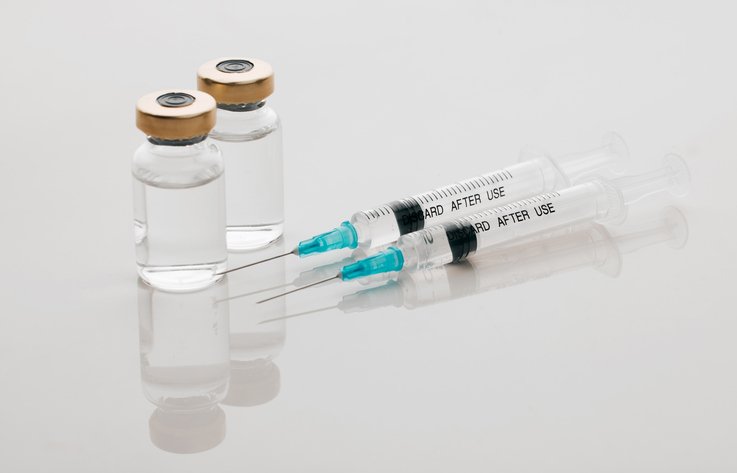Blog
does ketamine therapy get you high
Ketamine therapy can have mild dissociative effects, which are sometimes described as feeling “high” or “out of body,” but this is not the primary intention of its therapeutic use. At lower doses, ketamine can produce calming effects that help reduce symptoms of mental health conditions like depression, anxiety, and PTSD. Patients might experience relaxation, a slight sense of detachment, or mild euphoria, which some people compare to a high. does ketamine therapy get you high. However, therapeutic doses are carefully administered and monitored to minimize intense psychoactive experiences while focusing on ketamine’s antidepressant and anxiolytic benefits.
In clinical settings, ketamine’s effects are controlled to help patients engage in therapeutic processes rather than inducing a recreational “high.” For example, ketamine infusions typically cause mild dissociation that fades shortly after the session, and patients are generally able to return to normal functioning within a few hours.
ketamine therapy
Ketamine therapy is a treatment approach using ketamine, a dissociative anesthetic, to address symptoms of mental health conditions, including treatment-resistant depression, anxiety disorders, PTSD, and some types of chronic pain. gamefowl for sale. It’s typically administered in specialized clinics and can be delivered through intravenous (IV) infusions, intramuscular injections, nasal sprays (like esketamine), or oral lozenges. does ketamine therapy get you high
Here’s an overview of ketamine therapy and its benefits:
- Rapid Relief from Depression: Unlike traditional antidepressants, which can take weeks to work, ketamine therapy often provides quicker relief, sometimes within hours or days, making it particularly helpful for individuals with severe, treatment-resistant depression.
- Alleviation of Suicidal Thoughts: Research shows ketamine can rapidly reduce suicidal ideation, which is critical for patients in crisis situations. is ketamine
- Treatment of Anxiety and PTSD: Low-dose ketamine therapy can provide symptom relief for anxiety and PTSD, helping to reduce symptoms of hypervigilance, flashbacks, and general anxiety.
- Chronic Pain Management: Ketamine therapy can be effective in managing chronic pain conditions, especially those that involve neuropathic pain, due to its ability to modulate pain pathways in the brain. Ketamine Infusions
- Dissociative Effects: The dissociative aspect of ketamine, at therapeutic doses, often promotes introspective experiences that can help patients gain new perspectives on their mental health, which some find beneficial for psychotherapy integration. does ketamine therapy get you high
Typically, ketamine therapy sessions are supervised by medical professionals to monitor the patient’s response and adjust dosing as needed. The therapy is often used as part of a broader treatment plan, including psychotherapy, to optimize long-term benefits. does ketamine therapy get you high
ketamine Clinic
A ketamine clinic is a specialized medical facility that offers ketamine therapy as a treatment for various mental health and chronic pain conditions, including treatment-resistant depression, anxiety, PTSD, and neuropathic pain. where to buy ketamine. These clinics provide controlled, professional environments where ketamine can be safely administered, often in the form of intravenous (IV) infusions, intramuscular injections, or, in some cases, as a nasal spray (like esketamine). does ketamine therapy get you high
Key Aspects of Ketamine Clinics:

- Professional Supervision: Treatments are administered by medical professionals, often with a background in psychiatry, anesthesiology, or pain management, who monitor patients’ responses and adjust dosages as needed.
- Therapeutic Environment: The clinical setting is designed to support patients through the dissociative and introspective effects of ketamine, with protocols to minimize anxiety and discomfort during sessions.
- Integrated Care: Many clinics incorporate ketamine therapy as part of a broader mental health treatment plan, often including follow-up psychotherapy and support to maximize the therapeutic benefits.
- Treatment Options: Clinics typically offer IV infusions, which have rapid onset, but some may also provide intramuscular injections or esketamine nasal spray (approved for treatment-resistant depression).
Finding a Ketamine Clinic
When looking for a ketamine clinic, it’s essential to ensure it is reputable, with qualified professionals and appropriate safety protocols. Checking credentials, reviews, and affiliations with mental health or pain management organizations can help guide your choice.
Since regulations and treatment protocols vary by location, consulting a medical professional familiar with ketamine therapy can also be beneficial when considering treatment.
uses of Ketamine
Ketamine is a versatile medication used in several areas of medicine. Here are its primary uses:
- Anesthesia: Ketamine is widely used as an anesthetic in both humans and animals. It is particularly useful in emergency settings because it can induce anesthesia quickly without the need for ventilation support. It’s known to produce dissociative anesthesia, which can help maintain the patient’s airway and cardiovascular stability.
- Pain Management: Ketamine is often used in lower doses to treat acute and chronic pain conditions, especially for patients who have not responded well to traditional pain medications. It can be administered in various forms, such as intravenous (IV) or intramuscular (IM), to manage conditions like neuropathic pain and complex regional pain syndrome (CRPS).
- Mental Health Treatment: In recent years, ketamine has gained attention for its rapid-acting antidepressant effects, especially in treating treatment-resistant depression, major depressive disorder (MDD), and certain anxiety disorders. Administered in controlled, low doses, ketamine has shown effectiveness in reducing depressive symptoms within hours, making it valuable for people unresponsive to standard antidepressants.
- Sedation in ICU: Due to its ability to provide sedation without suppressing breathing significantly, ketamine is sometimes used in the intensive care unit for patients needing long-term sedation, such as during mechanical ventilation. ketamine crystals
- PTSD and Substance Use Disorders: Studies are exploring ketamine’s potential in treating post-traumatic stress disorder (PTSD) and substance use disorders, as it may help “reset” certain neural pathways associated with addiction and trauma responses.
Its unique properties and rapid onset make ketamine a valuable tool across different fields, although it’s strictly regulated due to potential misuse.
Ketalar
Ketalar is a brand name for ketamine, a medication primarily used for its anesthetic and analgesic properties. Typically administered in hospitals or medical settings, Ketalar is available in injection form and is often used to induce anesthesia, particularly in emergency situations where rapid, non-airway suppressing sedation is needed. Its effectiveness in dissociative anesthesia, where patients remain conscious but detached from pain, makes it especially valuable in critical care.
Ketalar is also used off-label in low doses for treatment-resistant depression and certain mood disorders, often under controlled, specialized care settings. The drug’s impact on NMDA (N-methyl-D-aspartate) receptors in the brain has shown promising results in rapidly alleviating depressive symptoms, particularly in individuals not responding to traditional antidepressants.
In clinical settings, Ketalar’s side effects are managed carefully, as it can produce dissociative effects and potential for abuse if not used appropriately. The medication is regulated and requires prescription and administration by healthcare professionals.
Uses of Ketalar
Ketalar, the brand name for ketamine hydrochloride, is used for various medical and therapeutic purposes:
- Anesthesia: Ketalar is primarily used to induce anesthesia in both surgical and emergency settings. It’s effective for short surgeries or procedures, providing a dissociative anesthetic state that allows patients to remain conscious yet detached from their surroundings and pain.
- Pain Management: It’s used in lower doses for acute pain relief, particularly in patients with severe injuries or chronic pain who may not respond well to opioid painkillers.
- Treatment-Resistant Depression: Ketalar is administered off-label at low doses in clinical settings for patients with major depressive disorder or bipolar disorder who haven’t responded to traditional antidepressants. Research has shown it can have rapid-acting antidepressant effects due to its NMDA receptor-blocking mechanism. does ketamine therapy get you high, ketamine infusion therapy
- Post-Traumatic Stress Disorder (PTSD) and Anxiety: In controlled, therapeutic environments, low doses of ketamine have been explored for reducing symptoms associated with PTSD and severe anxiety. ketamine therapy near me
- Asthma and Respiratory Management: Ketalar is sometimes used as an anesthetic for patients with asthma, as it does not suppress respiration to the same degree as other anesthetics.
Ketalar’s unique properties make it a valuable option in settings that require quick pain relief, sedation without significant respiratory suppression, and alternative treatments for mood disorders resistant to standard therapies.
ketamine Tablets
Ketamine tablets are generally less common than other forms, such as injectable solutions, liquids, and nasal sprays. buy ketamine. When available, they are typically prescribed in clinical or therapeutic settings. Ketamine in tablet form, like other formulations, can have several applications:
- Pain Relief: Low-dose ketamine tablets may be used to manage chronic pain, especially for patients unresponsive to traditional painkillers. They work by modulating pain signals through NMDA receptor antagonism.
- Mental Health Treatment: In off-label therapeutic contexts, oral ketamine is used for depression, anxiety, and PTSD. The slow-release of tablets provides longer-lasting, though less immediate, effects than intravenous ketamine.
- Ease of Use: Tablets are sometimes favored for at-home or maintenance treatments due to ease of administration compared to injections or infusions, though they are usually used under medical supervision.
Oral ketamine is less bioavailable than intravenous forms, meaning it takes longer to reach effective levels in the bloodstream. It also undergoes more significant liver processing, affecting how the drug is absorbed and metabolized. Consequently, it has a slower onset of effects compared to other methods like nasal sprays or injections. Ketamine For Sale
What is ketamine
Ketamine is a medication primarily known for its anesthetic properties. It was originally developed in the 1960s and is used in various medical settings, including surgical procedures and pain management. Here are some key points about ketamine:
- Anesthetic Use: Ketamine is widely used as a general anesthetic in both humans and animals. It induces dissociative anesthesia, where the patient may feel detached from their environment and body, which is useful for certain medical proceduresental Health Applications**: In recent years, ketamine has gained attention for its rapid-acting antidepressant effects, particularly for treatment-resistant depression. It has shown promise in reducing symptoms of depression, anxiety, and PTSD, often within hours of administration . buy ketamine online. This lower doses than those used for anesthesia.
- Forms and Administration: Ketamine can be administered in several forms, including intravenous (IV) infusions, nasal sprays, and oral tablets. Each method has different onset times and effectiveness. For example, the nasal spray formulation, such as esketamine (a derivative of ketamine), has been approved for treating depression .
- **Mechanism of Actirily works by blocking NMDA receptors in the brain, leading to an increase in glutamate activity. This action is believed to play a role in its antidepressant effects .
- Potential for Abuse: Despite its , ketamine also has potential for misuse and addiction due to its psychoactive effects. Recreational users may seek its dissociative properties, leading to concerns about its non-medical use .


Hi, this is a comment.
To get started with moderating, editing, and deleting comments, please visit the Comments screen in the dashboard.
Commenter avatars come from Gravatar.